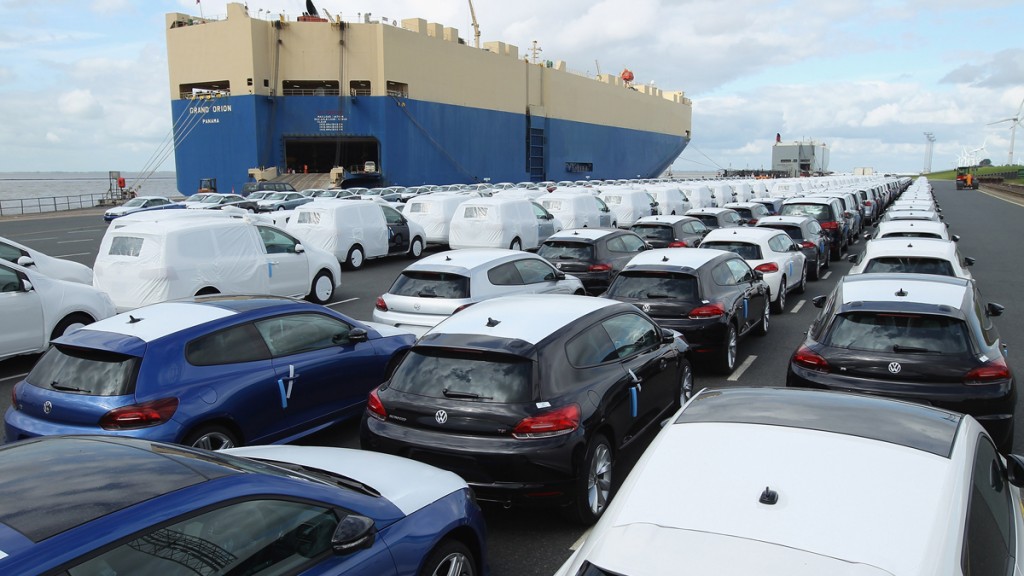
What would the global effect of Brexit be? Entirely uninteresting it seems. In her column in the Washington Post yesterday, Catherine Rampell asked Moody’s Analytics to model the result on the US economy for her. As you can see from the resulting chart below, nothing much happens in the US.
The lines for GDP with and without it separate slightly in the near term but move comfortably back together by 2020. No suggestion of much in the way of upheaval there (despite the fact that the headline refers to Brexit as a “terrible economic shock”).
Things might be worse for countries inside the EU, however. Look at the papers earlier in the week and it looks like the worst affected could be Germany. We are Germany’s third largest export partner with sales to the UK from Germany accounting for around 3% of the country’s GDP. If there isn’t a quick and generous trade deal that, say the Munich based Ifo Institute for Economic Research, could cut German long-term economic growth by 3%.
The IMF is on the same page: it predicts terrible things for the UK on Brexit but also reckons that any countries with close trade and finance links with the UK would be hit. To that list they add Ireland, Malta, Cyprus, Luxembourg, the Netherlands and Belgium. #
Breakingviews.com also notes that Brexit might end up being a pain for Spain: some of its biggest companies have made big bets in the UK (think Santander, Iberdrola and Ferrovial). “It is unlikely that any EU economies would gain from the UK’s exit.”
Standard & Poor’s agrees. It will, it says, be worst for Ireland which is the most susceptible “to any trade and migratory aftershocks” from a decision from the UK to leave. It’s worth thinking about why Brexit makes no odds to the US – we haven’t a trade deal with them anyway so what difference? Then it’s worth thinking about why it matters to likes of Germany – because we do have a trade deal with them already.
This is simple stuff making a simple point: the single market matters to the rest of the EU just as much as it does to the UK (arguably rather more). So a post Brexit deal will, I think be fast and pretty straightforward. It isn’t in anyone’s interests for it not to be.
That might not be something that the scaremongers on all this can bring themselves to grasp (they want it to be way more complicated) but it is something that S&P point out in its report on the matter: Brexit misery for Ireland they say, only happens “in the unlikely event that an excited UK would not reach new terms on trade access to the EU after its departure.”
Assuming everyone behaves sensibly we’ll be in EFTA before we know it, and – financially at least – Brexit will turn out to be a total non-event.